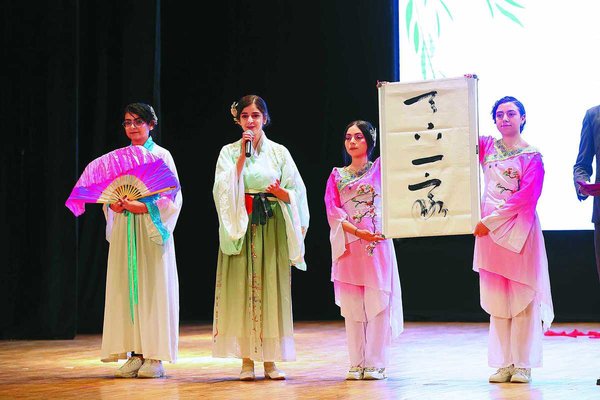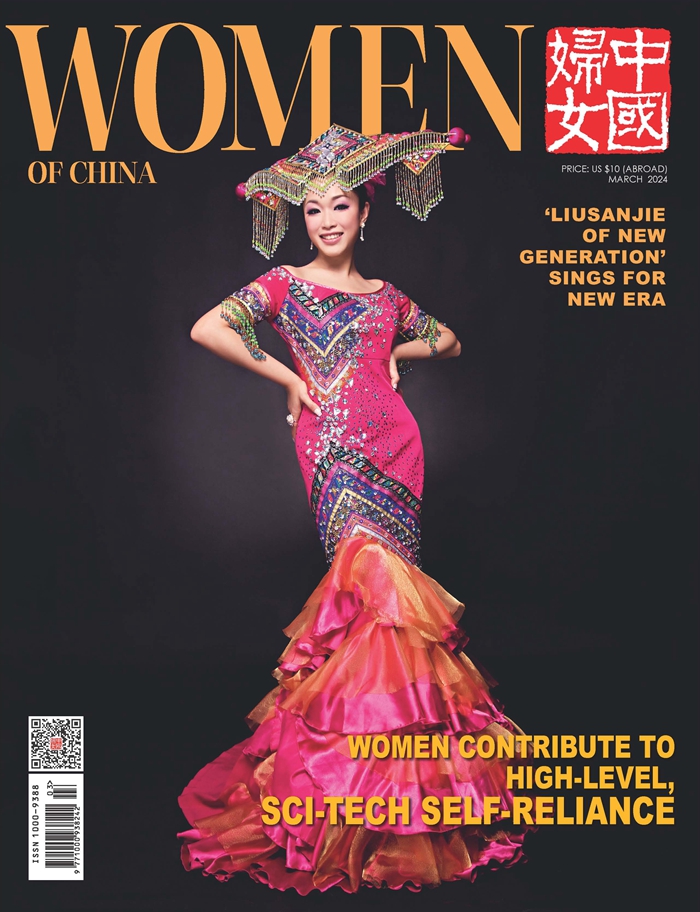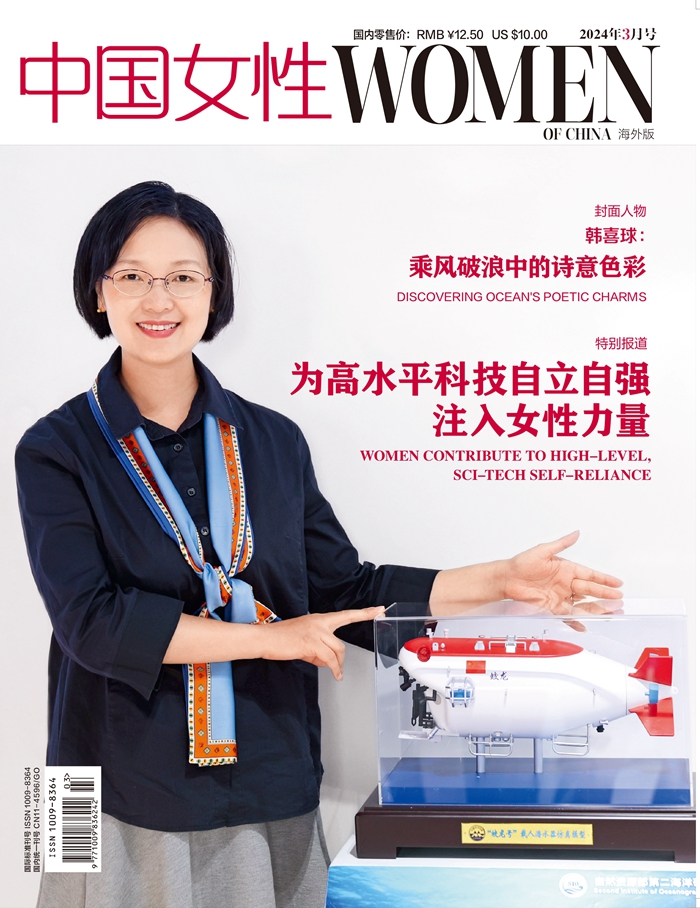More Saudi Students to Learn Chinese
 |
| A contestant (center) displays her Chinese calligraphy skills during the 22nd "Chinese Bridge" competition for Egyptian university students at the Suez Canal University in Ismailia, Egypt, on May 8. [Sui Xianka/Xinhua] |
Amid closer ties with China, Saudi Arabia's Ministry of Education has asked the nation's public and private secondary schools to teach Chinese language classes twice a week.
The Saudi Gazette reported that the schools were asked to set aside time on Sundays and Mondays for Chinese lessons.
An agreement was reached in 2019 during Saudi Crown Prince and Prime Minister Mohammed bin Salman Al Saud's visit to Beijing to include the Chinese language as part of the curriculum at all levels of education in Saudi schools and universities.
In December last year, during President Xi Jinping's state visit to Saudi Arabia, leaders from the two countries signed an agreement on education cooperation.
Based on the agreement, the Center for Language Education and Cooperation of China's Ministry of Education will send Chinese language teaching experts to compile the syllabus and help Saudi Arabia train local teachers and host Chinese language proficiency tests.
Experts said the closer relationship and increasing trade and economic ties between China and Arab countries in recent years have increased the popularity of the Chinese language in the region.
 |
| A contestant participates in the "Chinese Bridge" for university students in Riyadh, Saudi Arabia, in July 2022. [Wang Haizhou/Xinhua] |
Saudi Arabian newspaper Okaz reported that incentives will be offered to the best students of Chinese. It said that the top 16 men and 16 women students of Chinese in Saudi Arabia will be awarded by the nation's Education Ministry.
Mohammed Asiri, an assistant professor of international commercial law at King Abdulaziz University in Jeddah, told Arab News in December that Saudi Arabia is China's largest trading partner in the Middle East and Africa, and China is the largest importer of oil from Saudi Arabia.
There has been an influx of investment by Chinese companies in Saudi Arabia, as they view the country as a promising environment based on its Vision 2030 blueprint, he said.
As Saudi Arabia, Iran and the United Arab Emirates were invited to become new BRICS members, there is expected to be more enthusiasm among people in these countries to learn Chinese, which is a window to learn about China's rich history and rapid development, experts said.
Liu Li, president of Beijing Language and Culture University, said that more than 8,000 students from Arab countries have attended the university.
There are also more than 800 teachers, students and professionals from Arab countries conducting academic exchanges at the university, Liu said.
Hou Yuxiang, dean of the School of Middle Eastern Studies at Beijing International Studies University, said the series of measures taken by Saudi Arabia on teaching Chinese shows the country's stance on building good bilateral relations.
Nine universities in Saudi Arabia offer Chinese language majors, and the country has cultivated more than 300 local Chinese language teachers, he said.
Meanwhile, Iran has announced that it would include Chinese in its national education system starting in 2024, and Chinese is taught in 158 public schools in the UAE, Hou said.
While the Chinese language is appearing in more education curriculums around the world, this trend is particularly notable in Arab countries, Hou said.
This is based on historically friendly relations between China and the region and the fruitful results of economic, cultural, trade and safety cooperation in recent years, he said.
By the end of last year, the UAE, Saudi Arabia, Egypt and Tunisia had included the Chinese language in their national education systems, and 16 Arab countries had launched Chinese language majors at their universities, Hou said.
"More Arab students have learned about a rich and comprehensive China through learning the Chinese language, and they are understanding and promoting Chinese culture in a more accurate and rational way," he added.
This has not only promoted official communication between China and the Arab region, but also facilitated people-to-people exchanges and cooperation among young people from both sides, Hou said.
(Source: China Daily)
Please understand that womenofchina.cn,a non-profit, information-communication website, cannot reach every writer before using articles and images. For copyright issues, please contact us by emailing: website@womenofchina.cn. The articles published and opinions expressed on this website represent the opinions of writers and are not necessarily shared by womenofchina.cn.








 WeChat
WeChat Weibo
Weibo 京公网安备 11010102004314号
京公网安备 11010102004314号